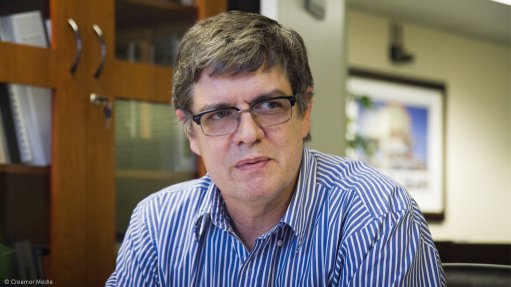
DRA CEO Paul Thomson
Photo by: Duane Daws
Slow growth in the South African mining industry is threatening to erode the availability of critical skills in the local industry, as experienced engineers turn to other emerging and faster-growing industries for work opportunities.
Project engineering house DRA CEO Paul Thomson says, like the Australian engineering industry, the South African industry is also feeling the pressure of fewer projects, with companies letting people go to keep their businesses profitable.
“Once these people move out of the industry, it is tough to get them back,” he says, adding that engineers are moving into the fast-growing industries of oil and gas and frac sands.
Thomson questions whether South African engineering companies will have the ability to take projects further when the local mining industry turns around, or whether they will have to import skills from Canada, the US or Australia at “ten times the price”.
“It is a serious threat to the South African industry,” he states.
The mining downturn has also changed engineering companies’ approach to securing work, with engineering houses now looking at ways of partnering with mineral rights holders and arranging financing for projects.
Thomson says engineering houses are more competitive and more aggressive in their attempts to win projects. “The marketing and business development model has moved on from the days of having an informal relationship with the project manager and sealing the deal over coffee. You now have to consider all the aspects that never used to enter the minds of engineering companies before.”
Thomson says the South African mining industry is currently depressed, owing to the uncertainty about legislation and policies. He believes South Africa should market its strong points, in terms of infrastructure, to create a more favourable investment climate.
“Back in South Africa, we are better off than the rest of Africa to force investment and we must utilise it.”